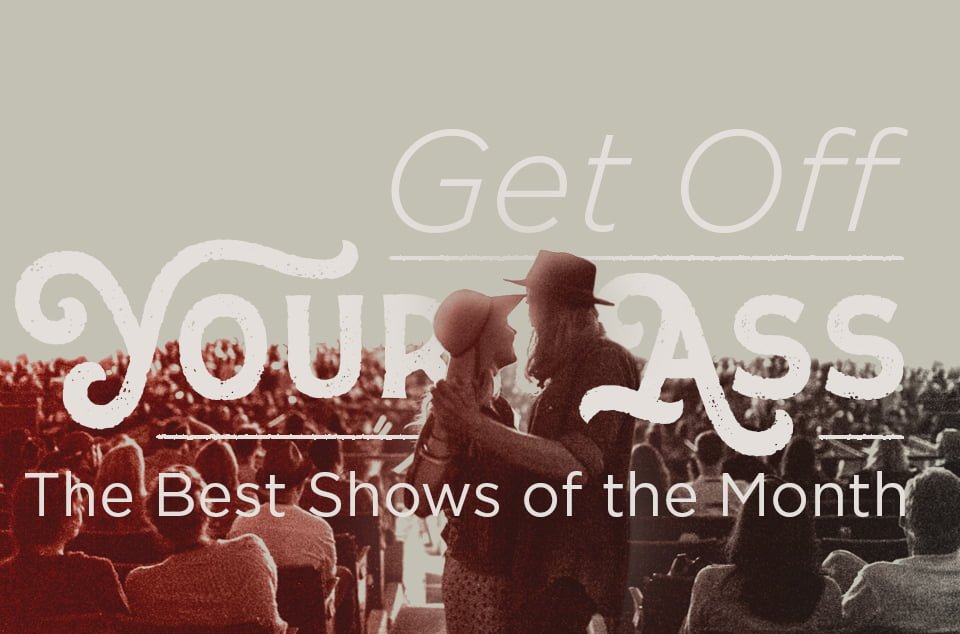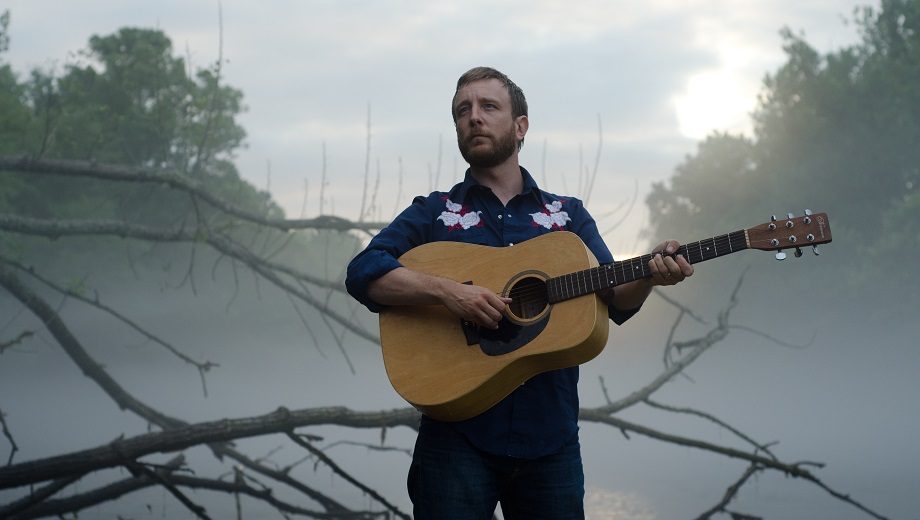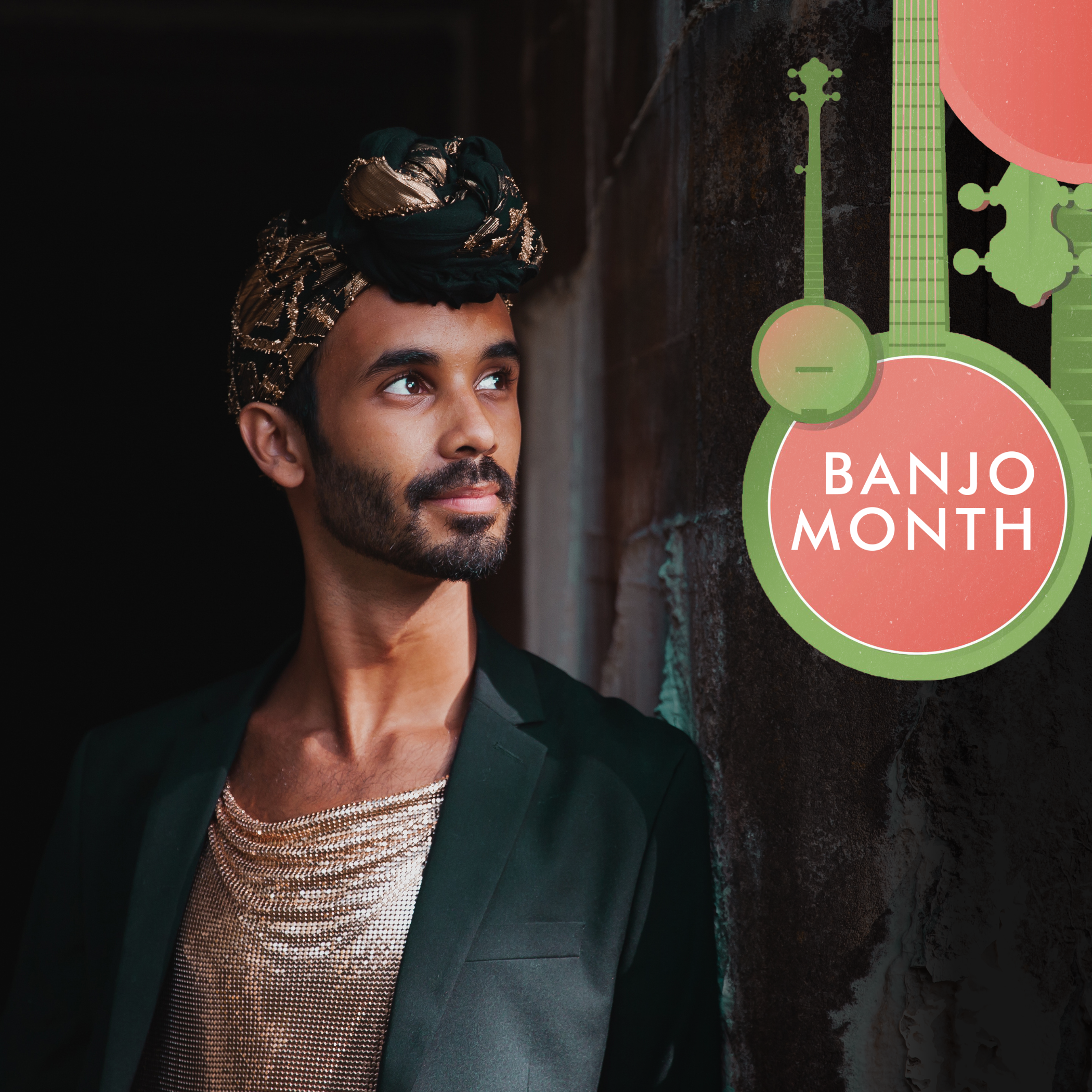It’s impossible to unhear the sound that issues forth once Valerie June opens her mouth to sing. It’s a voice at once ancient — arisen from some sepia-toned past — and startling modern. From its color to its timbre to its texture, there exists something powerfully original about her primary instrument. But if June were just another singer with a distinct set of pipes, this wouldn’t be an article worth reading, and she wouldn’t be an artist worth covering. It’s how she employs her voice, and the fun she has blending and blurring genres that showcases her pioneering talent.
The multi-instrumentalist and Tennessee native returns this month with her sophomore major label release, The Order of Time. Arriving four years after her debut, Pushin’ Against a Stone, saw her perform at the White House, make countless television appearances, and become a festival staple, the album indeed took some time. June didn’t let her success dictate her writing schedule and rush her back into the studio. Instead, she read poetry, danced, cooked, and languished, allowing the music to unfold on its own schedule rather than hemming and hawing about hers. Thanks to that patience, she’s pushed her own boundaries even further.
The Order of Time spans blues, bluegrass, soul, folk, rock, and more, gathering pieces from each to build a kaleidoscope, of sorts, that showcases the long undercurrent of history running through each. Banjo appears in greater measure throughout the album, calling to its African heritage on “Man Done Wrong” and showing off its rhythmic pacing on “Got Soul,” while “Shake Down” borrows a few branches from June’s family tree. She gathered her brothers and father — who passed away in November — in Tennessee to record the raucous and gritty jam. And then there’s the viscerally thrilling “If And,” which layers an array of heavy tones, including bass saxophone, bass clarinet, and harmonium, to create an almost unholy riff. Have fun not getting chills.
So much of this album deals with time and abiding by its rhythms. How do you cultivate patience?
I don’t have any at all.
That’s fair.
It’s pure torture, honestly. I just want it to happen. It’s like getting a new plant: You’ve been to the nursery, you bought this gardenia, but it’s not flowering yet. You put it in the perfect sun and give it the perfect water and all of that, but it’s still not flowering weeks later, and you’re just like, “Oh my God, I really want the gardenia to flower, because it’s the best smell in the world and I love it. That’s why I bought it — for the flower — not for this green plant.” A lot of patience has to happen, but you don’t have it. You’re forced into it. And then, one day, it does flower and you’re really excited about it. That’s what it’s like.
I love that analogy. Building off it, how much of patience is, perhaps, about distraction?
It has to happen that way.
So what do you distract yourself with?
So many things. Life happens, people call and want me to do something, or it’ll be time to eat. [Laughs] I dance a lot. I have routines for distracting myself, and dancing is a big part of it. You have to have systems set up, you know, to keep you from dwelling in frustration. So whatever your things are that you love to do, you have to do those things. It’s almost like you have to be like, “I’m frustrated! Stop everything. Okay, now it’s time to dance. Nothing matters but dancing right now.”
It’s the physicality of it. It seems that when creatives get too caught up in their mental state, it helps to do something physical to calm that animal side of their brain down.
So true and, once every part of the body is moving, your mind is the last thing. You don’t even think about that part. It does take a minute, though, once the dancing starts. First, you’re still thinking, so your body — you’re moving it — you’re thinking, you’re thinking, and then, by the time you work the neck and the legs and the head and get the whole body going, you’re like, “Whoa!’ You’re gone man!” And it just takes one little moment of being gone to shift some ol’ thing.
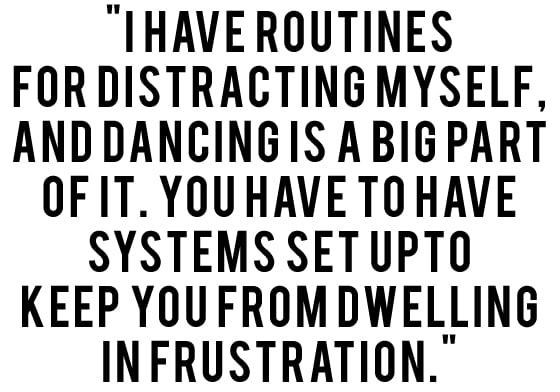
So are we ever going to get a Valerie June workout video?
I don’t know. That would be really ’80s and fun. I’d have to get some leg warmers, for sure.
And neon.
I love legwarmers. That seems like a good excuse.
What do you dance to?
So many things. I like dancing to Davie Bowie, and Spoon is a really fun band to dance to — it’s so upbeat and insane. And Fever Ray and Fela Kuti, Cass McCombs … so many things. Sometimes I dance to blues music. It just depends on what I need to shake out.
I can see how these all dancing moments influence your music.
It’s all there.
Turning to the album, “Man Done Wrong” brought to mind the personal lamentations you’d hear in Ma Rainey’s and Bessie Smith’s blues. Can you take me through writing that particular song?
It started on the banjo. I was just playing that riff, again and again, for a few days, and then I heard the chanting, and when I first started to hear the chanting, I thought, “Well, this is very tribal to me.” It’s a different way for the banjo to be, for me. In my own mind, I had certain parameters that the banjo was allowed to go — for it to lean toward old time or bluegrass — and the fact that it was getting outside of its lane and it was doing something that seemed African or tribal to me was like, “What the fuck is this?” [Laughs] When I started to receive that, I was like, “Wow, I can’t fight that.” I can’t fight what comes to me in a song; I have to accept it all because, once I start to fight it, I close the door and I shut off these voices. I have to make them all feel welcome in order to receive the entire song, so I just went with it and got into it, and started to hear the actual singing, and I was like, “Well, okay.”
All these ideas I had about the banjo and the way it was supposed to be played and the way it was supposed to be fit into this box, they had to go out the window. It was like, “I guess it is an African instrument.” I learned a lot trying to play that song, about the banjo being as innocent an instrument as any other instrument and it having a voice that can fit with any style of music. It wants to be free; it doesn’t want to fit within any parameter. It just wants to be an instrument and play around in the playground of music and sound. It opened my mind and it opened my thoughts about what it should do in the world, and how I should feel about it when I see somebody get up in front of me with one. Just because you see a trumpet, do you think, “They’re going to play jazz. They’re going to be Miles Davis”? No. When you see a trumpet, it could be marching band, it could be jazz, it could be anything. A banjo is the same.
It has this strong association with bluegrass, but there is that tradition of Black banjo players who were never recorded and so, in many ways, that history has been erased.
It’s true. It’s such a historical instrument. It keeps getting deeper and deeper, as much as you try to see where it’s going. It’s been a vibrant instrument in the past and going into the future.
Do you think these voices in any way are trying to communicate that lost history with you?
They are communicating so many things. I can’t even get my head wrapped around it because, as soon as I get one thing that they were saying, then it starts to change, like a good poem. You read this poem and when you’re younger — and I read Robert Frost’s “Two Roads” when I was younger — it meant one thing, but as I get older, it means something different. The songs are like that. They change like they are living; they live with you and they change the meaning.
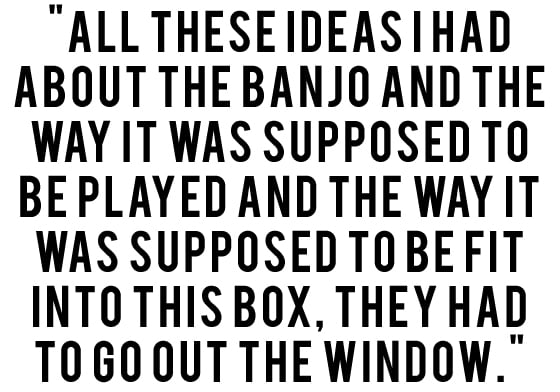
What other poets are you currently quite taken with?
I like Wendell Berry a lot. I could read that all day long, and T.S. Eliot and e.e. cummings, but Wendell Berry is really huge. I don’t even know how to describe what he does to me, but by the time I get to the end of one of his poems, I can be in complete tears and gratitude for all of life, for the earth, for everything. And the short stories are the same way.
He’s one of my favorites, too. I’m always so grateful for Wendell or, really, any poet who articulates the experience of living, especially when you haven’t found the words yourself yet.
That’s the shocking part. The ability to articulate it is like, “Wow!” I felt it, but I just couldn’t put it into words. You did it! You did it! [Laughs]
But you’re tasked with that same hurdle as a songwriter.
I don’t really feel like I have any kind of control over these things. I mean, I wish I could. I wish I wrote that way, where I could have a theme in my head and write something that fits the purpose, but the times I try, it doesn’t hit me as much as when I hear the voice and I just follow it. But I do try sometimes. I’d like to learn to write that way. I feel somebody like Toni Morrison or Zora Neale Hurston, they would have these thoughts going on in their minds about the world, about being a Black woman growing up, or things like that that they wanted to put into their writing, and they were able to articulate them through their craft. But, for me, I can’t do that. I don’t write that way.
There are so many different ways to approach it. Every writer has a different way.
I love writing with other writers because, when I do that, then I steal some of their style. I’m like, “Oh, that’s how you tapped into that.” They’re my teachers.
What a great way to learn. Well, lastly, I was curious about the song “Shake Down” and recording it with your family.
My brothers’ and my dad’s vocals were tracked in Tennessee. It was great because my dad’s not really a singer, but he was in the room and I was like, “You gotta sing.” And now he’s gone and so all I have is him singing that part. I have pictures, but I don’t have his voice anymore and I never will again. That really matters to have somebody’s voice after they’re gone. That really is something, so I really feel fortunate for that song.
Photo credit: Danny Clinch

